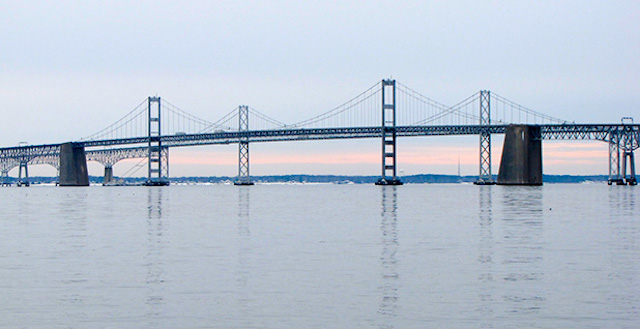The Chesapeake Bay is becoming cleaner thanks to farmers, the head of the Department of Agriculture’s conservation programs said yesterday.
Voluntary conservation through federal programs has driven a sharp reduction in pollution from sediment and farm runoff in recent years, said Jason Weller, chief of the Natural Resources Conservation Service, at a House Agriculture Subcommittee on Conservation and Forestry hearing.
“It’s delivering huge results, not just here in the Chesapeake Bay but nationally,” Weller said.
CHECK OUT: California Bans Use of Harmful Devices Against Captive Elephants
Among other accomplishments, Weller said, edge-of-field sediment loss declined by 15.1 million tons a year from 2006 to 2011, and nitrogen and phosphorus runoff declined by 8 percent and 20 percent, respectively, from 2009 to 2015.
Weller’s testimony followed a progress report on the Chesapeake Bay from his agency, showing continued improvement in the waterway’s health.
While agriculture is neither the sole cause of pollution nor the only reason for improvement, farmers and the NRCS are delivering on promises to encourage more conservation-friendly practices, he said.
MORE: Costa Rica Has Been Powered Only By Renewable Energy For 122 Days
Lawmakers, including Conservation Subcommittee Chairman Glenn Thompson (R-Pa.), say voluntary programs are more effective than mandates from U.S. EPA and other agencies.
Weller said the NRCS has invested more than $890 million in Chesapeake Bay conservation since 2009, coupled with about $400 million from sources such as farmers themselves.
“We’re talking about a very substantial investment,” Weller said.
Although states surrounding the Chesapeake have made strides, the effort hasn’t been universal, according to the Chesapeake Bay Foundation.
RELATED: California Governor Signs Ban on Orca Breeding and Entertainment
Maryland and Virginia are meeting goals, but Pennsylvania continues to fall short and needs additional help from the NRCS, said the CBF’s director of federal policy, Alix Murdoch.
Five counties there — Lancaster, York, Franklin, Cumberland and Adams — need the most reduction in pollution, Murdoch said.
“Applying NRCS’s expertise in delivering these programs to the five Pennsylvania counties would accelerate the commonwealth’s efforts to reduce pollution and restore local rivers, streams and the Chesapeake Bay,” Murdoch said.
Reprinted with permission from E&E Publishing
Multiply The Good: Click To Share




















